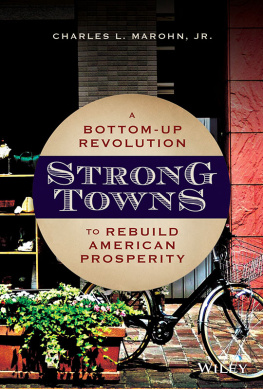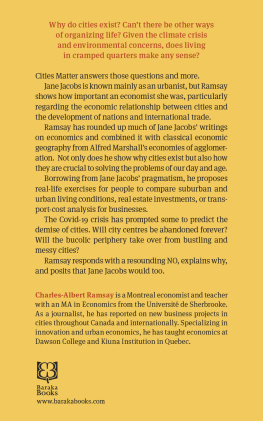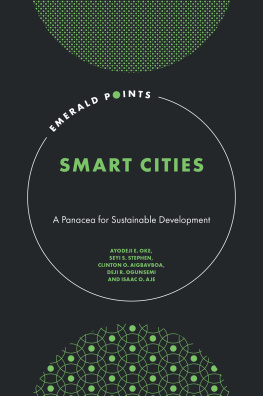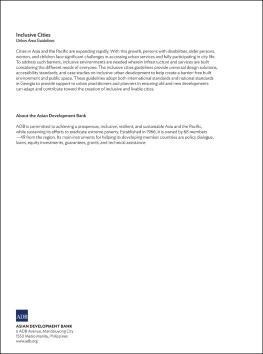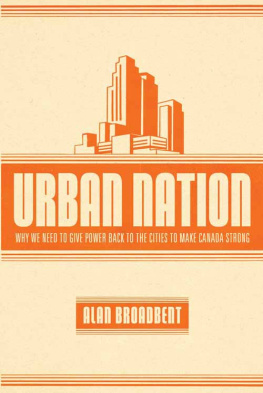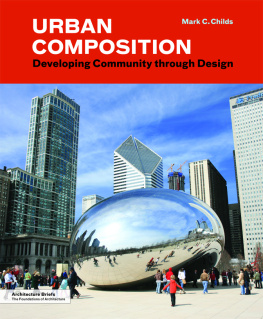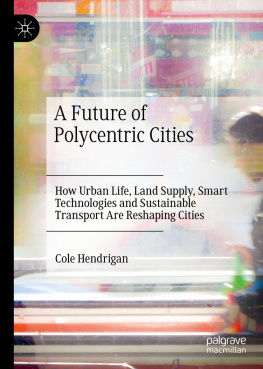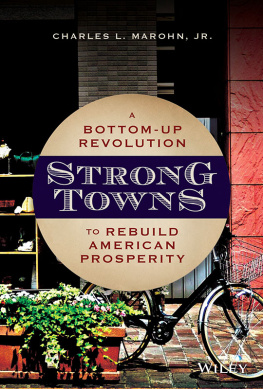

Copyright 2020 by Charles L. Marohn, Jr. All rights reserved.
Published by John Wiley & Sons, Inc., Hoboken, New Jersey.
Published simultaneously in Canada.
No part of this publication may be reproduced, stored in a retrieval system, or transmitted in any form or by any means, electronic, mechanical, photocopying, recording, scanning, or otherwise, except as permitted under Section 107 or 108 of the 1976 United States Copyright Act, without either the prior written permission of the Publisher, or authorization through payment of the appropriate per-copy fee to the Copyright Clearance Center, Inc., 222 Rosewood Drive, Danvers, MA 01923, (978) 750-8400, fax (978) 646-8600, or on the Web at www.copyright.com. Requests to the Publisher for permission should be addressed to the Permissions Department, John Wiley & Sons, Inc., 111 River Street, Hoboken, NJ 07030, (201) 748-6011, fax (201) 748-6008, or online at http://www.wiley.com/go/permissions.
Limit of Liability/Disclaimer of Warranty: While the publisher and author have used their best efforts in preparing this book, they make no representations or warranties with respect to the accuracy or completeness of the contents of this book and specifically disclaim any implied warranties of merchantability or fitness for a particular purpose. No warranty may be created or extended by sales representatives or written sales materials. The advice and strategies contained herein may not be suitable for your situation. You should consult with a professional where appropriate. Neither the publisher nor author shall be liable for any loss of profit or any other commercial damages, including but not limited to special, incidental, consequential, or other damages.
For general information on our other products and services or for technical support, please contact our Customer Care Department within the United States at (800) 762-2974, outside the United States at (317) 5723993 or fax (317) 572-4002.
Wiley publishes in a variety of print and electronic formats and by print-on-demand. Some material included with standard print versions of this book may not be included in e-books or in print-on-demand. If this book refers to media such as a CD or DVD that is not included in the version you purchased, you may download this material at http://booksupport.wiley.com. For more information about Wiley products, visit www.wiley.com.
ISBN 9781119564812 (Hardcover)
ISBN 9781119565154 (ePDF)
ISBN 9781119564805 (ePub)
Cover Photograph: Getty Images | Zhu Qiu / EYEEM
Cover design: Paul McCarthy
For my friend Joe, whose generosity knows no limits.
For my wife, Kirsti, whose patience is likewise endless.
And for my daughters, Chloe and Stella, who have been
asked to sacrifice too much.
Foreword
Santa Ana, California, is working hard and pulling together to transform itself into a twenty-first-century city by following the advice and principles that Chuck Marohn lays out in Strong Towns.
I met Chuck in 2014 when he spoke in Santa Ana, California, where I served as a city council member, but I had followed Strong Towns for many years before that. Chucks love for Americas cities, and his desire to make them strong and resilient, resonated with me because thats how I felt about my city.
Thanks to my study of the Strong Towns philosophy, I have learned that cities can cultivate resiliency and prosperity in the lives of even their most vulnerable citizens. Its every elected official and public servants responsibility to ensure we have systems in place that help cities meet the needs of their people. This book not only explains why this is so urgent, but how we get there.
For twelve years, I served on the City Council of my hometown of Santa Ana. Our community is 78 percent Latino, 10 percent Asian, and 9 percent white, with a high population of undocumented residents. Its a modern-day Ellis Island for Latinos with a median age of 29, nine years below the US median. Santa Ana, which is the fourth most densely populated city in America (right after Boston), faces all the challenges of todays urban America.
When I arrived in Santa Ana in 1990 as a young girl, I faced challenges too. My mother was in prison. I didnt know my father. My great-grandmother was raising me and eleven other great-grandchildren. We grew up in an environment with poverty, gang violence, and drugs.
I was one of the only kids who didnt use drugs, go to jail, or join a gang. I was fortunate. I had teachers and a few other adults who saw something in me and tried to help. The Boys & Girls Club of Santa Ana became my family. When I graduated high school, a businessman and community leader involved in the Boys & Girls Club offered me a job that would also pay for my education. I went to work for Mark Press at his baking company while attending the local community college. This changed my life.
I realize today that none of this would have happened without the invisible glue that binds a community together. These are the connections that are essential to a strong town.
From Chuck Marohn I came to understand how vital the physical layout of a city is for creating those connections. Strong towns arent made by real estate speculation or self-serving public policy. They are grown by the ideas, creativity, and the imagination of people within the community and by entrepreneurs and public servants who understand what needs must be addressed for the place to prosper.
I decided to run for city council at age of 26 because I wanted to create that same sense of opportunity for others that I had been given. Nobody believed Id win, much less make a difference, but I told my story over and over and knocked on thousands of doors. I looked people in the eye and said, Im not a politician. All I want to do is make a difference in the community that helped raise me. They gave me a chance, and I am grateful to say that I kept my word. I served on the Santa Ana Council from 2006 to 2018.
Like Chuck, I am a fiscal conservative and was vocal about the city being insolvent: you cant spend money you dont have. Chuck helped me understand the roots of todays public sector fiscal crisis, how we regulate real estate development in favor of auto-oriented sprawl instead of building communities that focus on mixed-use, walkable neighborhoods that emphasize social, economic, and environmental sustainability.
I became a positive disruptor, despite people who didnt want me rocking the boat. We were living in the nineteenth and twentieth centuries when Chuck came to speak to us. We had the building blocks a street grid, a promising downtown, amazing residents, and active neighborhood associations we just needed the right messenger to explain that we could make the changes we needed without leaving people behind. The Strong Towns message changed the conversation.
In the past, an alarming number of Santa Anas residents were falling through the cracks. The standard public policy responses were based on flawed notions of what makes communities thrive. Strong Towns provides an alternative approach, one that works because it focuses on people.
Chuck believes in getting out and experiencing a community with the people who live there. Its the only way to understand where their struggles are. I saw the truth of this when I served as a volunteer policy advisor for a federal court judge who presided over a homeless case with north Orange County cities. This judge walked the six-mile riverbed stretch where more than 1,000 people were encamped. He threatened to issue an injunction and, soon after, Santa Ana built a temporary shelter in just 28 days. Within a year, we had 5 shelters in Orange County and 4 more in the pipeline.
Next page
